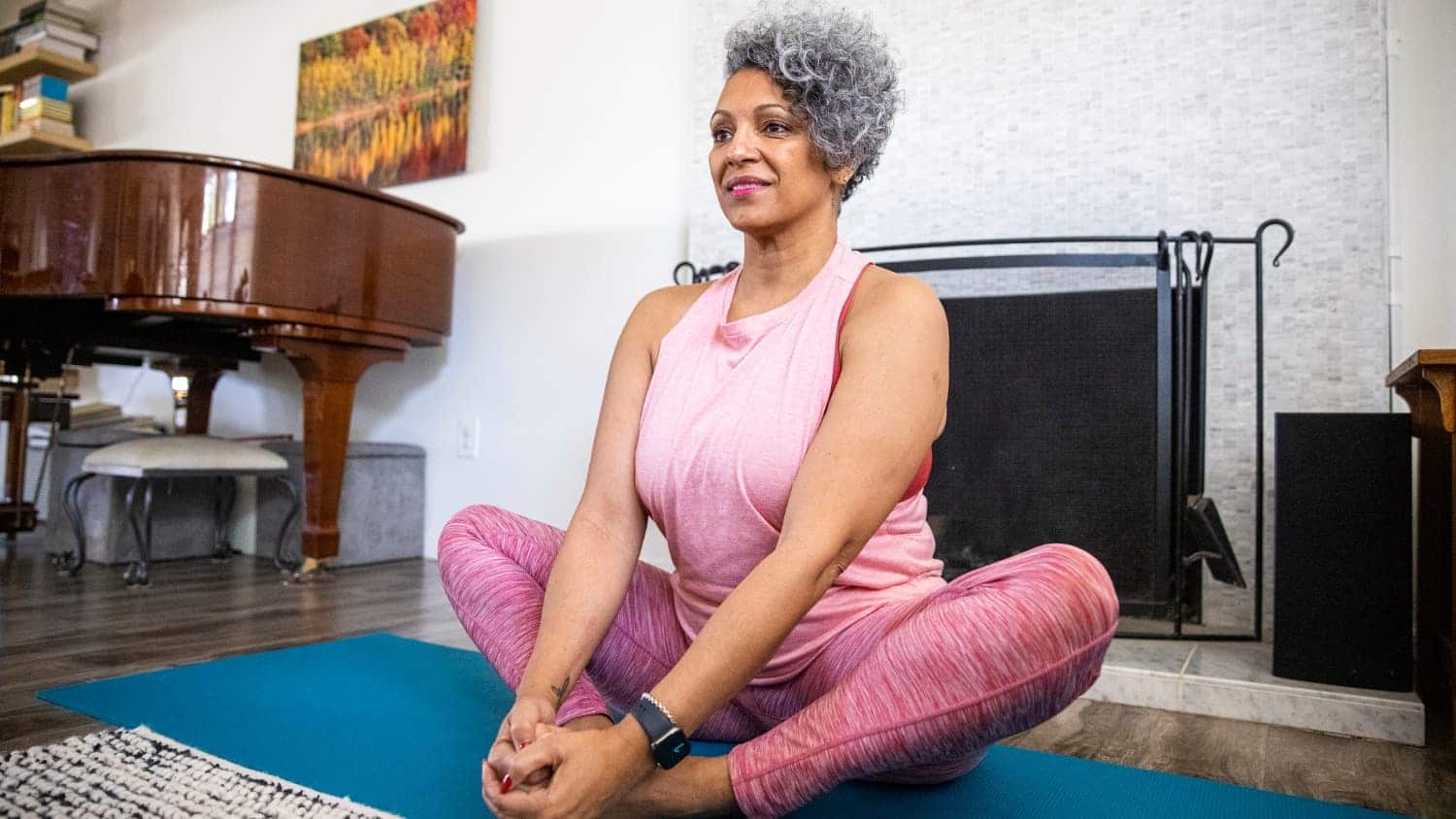
Can Living in Fear Age You Faster?
Most of us would probably answer yes to that question, although there really isn’t any definitive physiological connection between psychological stress (fear) and premature aging.
If you’re looking for a definition of fear, it’s anxiety that’s attached to a specific thing or a specific event or action. The dictionary defines it as an unpleasant emotion caused by the threat of danger, pain, or harm.
Anxiety is a disproportionate and usually prolonged feeling of fear. Most people with anxiety realise how disproportionate it is. In any event, both fear and anxiety cause stress.
It’s important to remember that the effects of life generally and specific stressful events are determined by the reaction and meaning given to the circumstances. Not the stressor itself.
We all know research has shown that stress affects us physically. From our own experience, we all know that stress can affect our thinking and the way we feel.
But is that proof enough that fear causes us to age faster? Which are the fears that affect us most, and why? Nowadays, you’re unlikely to be eaten by a huge, ferocious animal so the fear you experience must be created internally… unless it’s a big black hairy spider and that is definitely external.
Stress causes fear or does fear cause stress and is anxiety the middle of the sandwich? It’s almost a ‘chicken or egg’ type of question.
A Little Science Never Goes Astray
Leaping in at the deep end, telomeres, which are the ends of chromosomes, were discovered in the 1930s. In 1984, an enzyme called telomerase was discovered.
Is this important? Yes, because as we age, telomeres decrease in length, but telomerase counteracts the telomere shrinkage process. Unfortunately, the action of the enzyme is insufficient to stop cellular aging.
A number of studies have linked stress with shorter telomeres.
None of which tells us if living in fear ages us faster. Or is it the stress of living in fear?
What Worries Us? Really.
We need to start asking ourselves why so many of us live in constant fear of something. Why do we worry about lifestyle and societal changes that we have little to no power to change?
We worry about recycling, what rubbish goes where, how expensive electricity is, should we eat wholemeal bread or not, are we lactose intolerant… And the list goes on.
Worrying is something most of us seem to have a knack for doing. Is this true fear? Probably not, but it certainly increases the stress threshold.
10 Ways to Slow Aging and Lower Your Stress
If you are one of those people who cannot control your fear levels and want to lower your stress levels, which will contribute to slowing the aging process, here are 10 ways to do so.
Take Time Out
Thinking clearly is impossible when you’re flooded with fear or anxiety. Time Out is #1 so you can physically calm down before you mentally get yourself together.
Take a walk around the block, have a large glass of water, or even have a bath or shower.
Breathe
If your heartbeat increases or you start to sweat, don’t fight it. Stay where you are, place the palm of your hand on your stomach and breathe slowly and deeply.
You need to teach your mind to cope with the panic in order to lower the fear.
Face Your Fears
Avoidance is futile. Fear fades once you have looked it squarely in the eye and you lower your stress level.
Let’s say you get into an elevator one day and start to panic. It’s important that the next day you get back into that same elevator. You must knock it on the head before it starts.
Imagine the Worst
Realistically, in any situation, imagine the absolute worst that can happen and start to realise how unlikely it is to happen. Truly.
You know, you can’t panic yourself into having a heart attack no matter how strong your imagination. You just think you can.
A real leveller and fear banisher is to ask yourself “If X happened, would the world stop turning?” The answer is generally no, so relax and move on!
Look at the Evidence
Always a good move in anything. If you think an elevator you get into is going to plummet to the bottom of the shaft, ask yourself if you have ever heard of this happening to someone you know?
What would you say to a friend who had a similar fear? Think of the billions of elevators that go up and down every day all over the world…
Don’t Try to Be Perfect
Life is full of stresses, yet many of us feel that our lives must be perfect. Bad days and setbacks will always happen, and it’s important to remember that life is messy.
Visualise a Happy Place
Take a moment to close your eyes and imagine a place of safety and calm. It could be a picture of you walking on a beautiful beach, or snuggled up in bed with the cat next to you, or a happy memory from childhood. Let the positive feelings soothe you until you feel more relaxed and the stress disappears.
Talk About It
Sharing fears takes away a lot of their scariness and their power. If you can’t talk to a friend or partner, call a helpline; there are plenty around.
Have you thought of Cognitive Behavioural Therapy to help rid you of your fears?
If your fears aren’t going away, ask your doctor for help. Doctors can refer you for counselling, psychotherapy, or help through an online mental health service.
Go Back to Basics
Lots of people turn to alcohol or drugs to self-treat anxiety, but this will only make matters worse. Simple, everyday things like a good night’s sleep, a wholesome meal and a walk in the fresh air are often the best cures for anxiety.
Reward Yourself
I often think this should be top of the list!
Give yourself a treat. When you’ve made that call you’ve been dreading, or spoken to your boss about more money, or finally learned how to put air in your tyres, reinforce your success by treating yourself to something that makes you happy. Maybe have your nails done?
In fact, rewarding yourself at the end of every week is a great way to help you put your anxieties and fears aside. Relaxation and the application of the common sense you achieve when you relax is very age-positive.
Let’s Have a Conversation:
What do you do to calm your fears and lower your stress levels? Do you treat yourself every week? Are you ready to face your fears down? Do you believe lowering your stress levels is great for cellular anti-aging? Share some of your feelings about your fears and how you can or already have moved past them.






